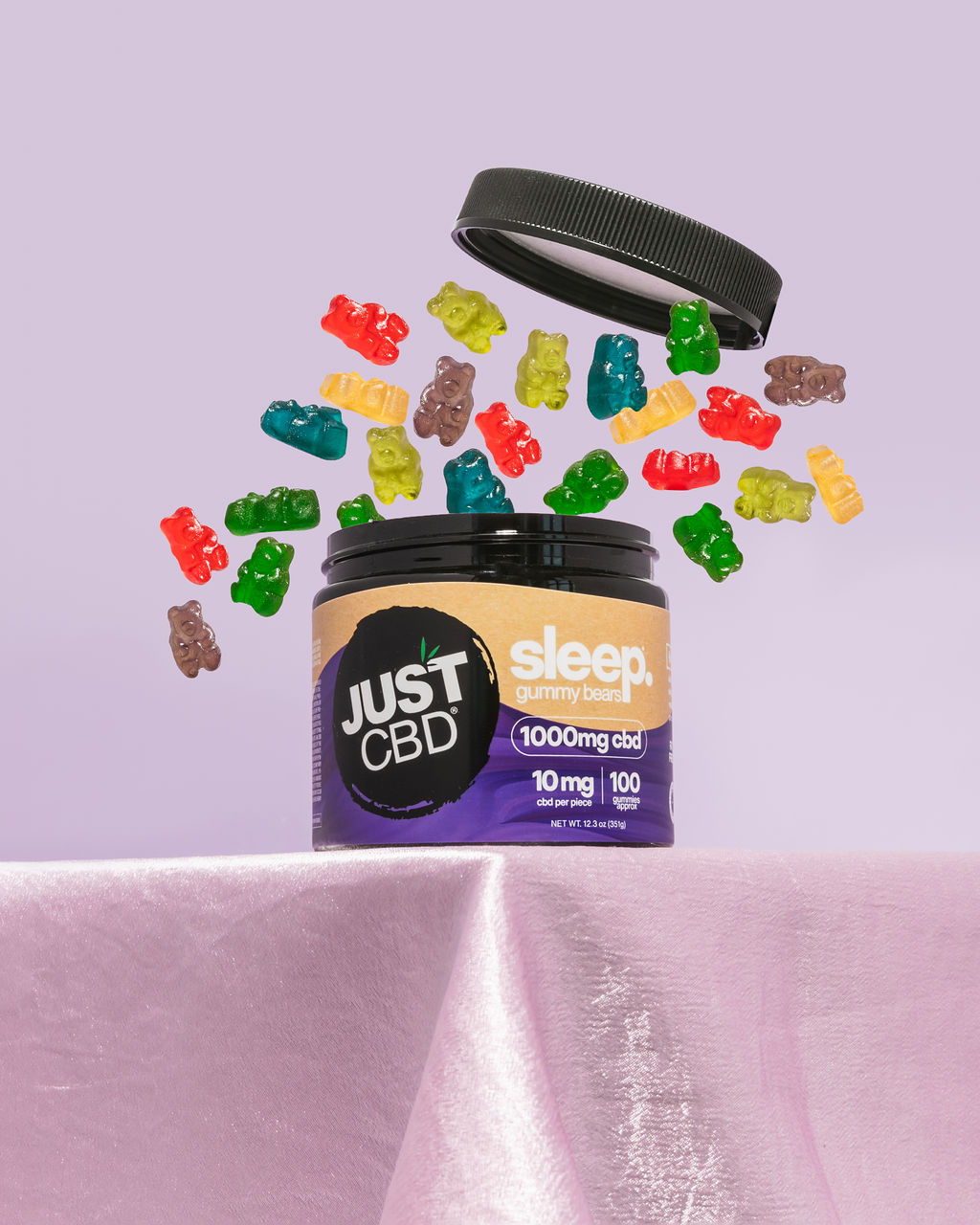Federal Regulations Navigating the world of herbal supplements can be complex, especially when it comes to understanding their legal status. Federal regulations play a crucial role in determining what substances are permissible and how they
Federal Regulations
Navigating the world of herbal supplements can be complex, especially when it comes to understanding their legal status. Federal regulations play a crucial role in determining what substances are permissible and how they can be sold and marketed. This article aims to shed light on the legality of kratom gummies within the United States, exploring the regulatory landscape and providing insights into potential regional variations.
Kratom’s Legal Status
Kratom, a plant native to Southeast Asia, has gained popularity for its purported medicinal and psychoactive effects. One way kratom is consumed is through gummies, which offer a convenient and discreet method of ingestion. However, the legal status of kratom and its products, including gummies, varies widely across jurisdictions. Understanding these regulations is crucial for consumers to ensure they are complying with the law.
- At the federal level in the United States, kratom is not currently classified as a controlled substance. This means it is generally legal to possess, sell, and distribute kratom products nationwide.
- However, individual states have the authority to regulate or ban kratom within their borders. Currently, several states have enacted laws either restricting or prohibiting kratom sales and possession.
- It is essential for individuals to research the specific kratom regulations in their state before purchasing or consuming kratom gummies or any other kratom product.
FDA Involvement
Federal regulations regarding kratom are currently in flux. While the Drug Enforcement Administration (DEA) has proposed classifying kratom as a Schedule I controlled substance, this classification has not yet been finalized. The Food and Drug Administration (FDA) has expressed concerns about the safety of kratom products, citing potential for adverse effects such as seizures and liver damage.
The FDA does not currently regulate the production or sale of kratom gummies specifically. However, they do have authority over labeling and manufacturing practices for any food product containing kratom, including gummies.
It’s important to note that individual states may have their own regulations regarding kratom. Some states have banned kratom outright, while others have restricted its sale or possession.
State Laws
Navigating the legality of substances like kratom can be complex, as regulations vary significantly from state to state. Understanding the specific laws governing kratom gummies in your area is crucial for ensuring compliance and avoiding potential legal issues.

Varying Restrictions
Kratom, a plant native to Southeast Asia, has gained popularity for its purported pain-relieving and mood-boosting effects. However, its legal status varies widely across the United States. While some states have legalized kratom entirely, others have banned it outright, while still others impose restrictions on its sale or use.
Understanding the legality of kratom gummies in your area is crucial to ensure compliance with local laws. Kratom gummies are a popular form of consuming kratom, and their legal status often mirrors that of traditional kratom powder or capsules. It’s important to note that even where kratom is legal, certain restrictions may apply, such as age limits, purchase limits, or prohibitions on sale to minors.
To determine the specific legality of kratom gummies in your state, it’s best to consult with local authorities or legal experts. Additionally, reputable online resources that provide up-to-date information on kratom laws can be helpful. Remember, navigating the complexities of state laws regarding kratom products requires careful research and attention to detail.
Legalization Efforts
While the federal government has not explicitly banned kratom, individual states have taken varying stances on its legality. Some states have outright prohibited kratom sales and possession, while others have implemented regulations governing its sale and distribution. Understanding the specific laws in your state is crucial to ensure compliance.
Kratom gummies, due to their form factor, are often subject to the same legal restrictions as other kratom products within a given jurisdiction. It’s important to note that legalization efforts are constantly evolving. What may be legal today could change tomorrow, so staying informed about the latest developments in your state is essential.
Local Ordinances
Local ordinances play a vital role in shaping the legality of various substances, including herbal supplements like kratom. While federal regulations provide a baseline framework, individual cities and counties often have their own specific rules regarding the sale, possession, and use of kratom products.
City and County Bans
While federal law doesn’t currently ban kratom, local ordinances and city and county bans can make it illegal in specific areas. These bans often arise from concerns about the potential health risks associated with kratom use.
Consumers should always check with their local authorities to determine the legality of kratom gummies in their area. This information may be available on government websites or by contacting local law enforcement.
Enforcement Practices

The legal status of kratom gummies can vary depending on your location. While federal law doesn’t currently prohibit kratom, individual states have the authority to regulate or ban it.
- Some states have enacted laws restricting or prohibiting kratom sales and possession.
- Other states may have no specific laws regarding kratom, meaning its legal status is ambiguous.
It’s crucial to research the specific regulations in your state before purchasing or consuming kratom gummies. Local ordinances might also play a role, so checking with your city or county government can provide additional clarity.
Enforcement practices for kratom laws can differ widely. Some states may actively enforce bans or restrictions, while others may choose to focus on other priorities.
Purchasing and Possession
Understanding the legality of kratom gummies in your area is crucial due to the complex and ever-changing regulatory landscape surrounding this herbal supplement. While kratom itself remains unregulated at the federal level in the United States, individual states have the authority to impose their own restrictions or outright bans on its sale and possession.
Licensed Retailers
Purchasing kratom gummies depends heavily on your location.
Federal law in the US does not currently classify kratom as a controlled substance. This means it can be sold and possessed legally throughout the country. However, states have their own individual laws regarding kratom, and some states have chosen to ban or restrict its sale.
Licensed retailers selling kratom gummies must comply with all applicable state and federal regulations. In states where kratom is legal, licensed retailers will typically be required to display appropriate signage, maintain inventory records, and adhere to age restrictions on sales.
It’s important for consumers to research the specific laws in their state before purchasing kratom gummies from any retailer.
Online Purchases
Purchasing kratom gummies online can be convenient but requires careful consideration of legal implications. Laws surrounding kratom vary significantly from state to state in the United States. While kratom itself is not federally regulated as a controlled substance, individual states have the authority to enact their own laws restricting or banning its sale and possession.
Before making an online purchase, it’s crucial to thoroughly research the specific kratom laws in your state of residence. Purchasing kratom gummies from a website that ships to your state does not automatically guarantee legality. It is the responsibility of the buyer to ensure compliance with all applicable laws.
Furthermore, be aware that even if kratom is legal in your state, there may be age restrictions or limitations on purchase quantities. Reputable online vendors should clearly state their shipping policies and comply with all relevant state regulations.
Health Concerns and Risks
Health concerns and risks associated with kratom consumption are a subject of ongoing debate and research. While some individuals report positive effects from using kratom, potential adverse effects have been documented, including seizures, liver damage, and dependence.
Potential Side Effects

Kratom is a plant with potential health benefits and risks. It’s important to be aware of these before using it.
Potential side effects of kratom can include nausea, constipation, dizziness, and headaches. In some cases, kratom can lead to more serious health problems such as seizures, liver damage, and addiction.
It’s crucial to consult with a healthcare professional before using kratom, especially if you have any pre-existing medical conditions or are taking other medications.
Interactions with Medications
Kratom’s legal status is a complex issue with variations across different regions. While it isn’t classified as a controlled substance at the federal level in the United States, several states have implemented their own regulations, including bans or restrictions on kratom sales and possession.
Individuals considering using kratom gummies should be aware of these state-level variations and consult local resources to ensure compliance with applicable laws.
Find Kratom Gummies for sale here
Get the complete idea here
See the blog’s content in full
- Why Does Lip Filler Migrate - November 21, 2025
- What Is The Best Thing To Put On Lips After Fillers? - November 19, 2025
- What Are The Best CBD Gummies For Relaxation Before Bed? - November 16, 2025
